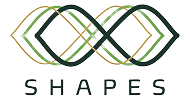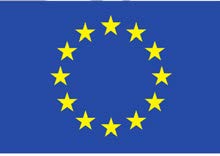SHAPES Partners
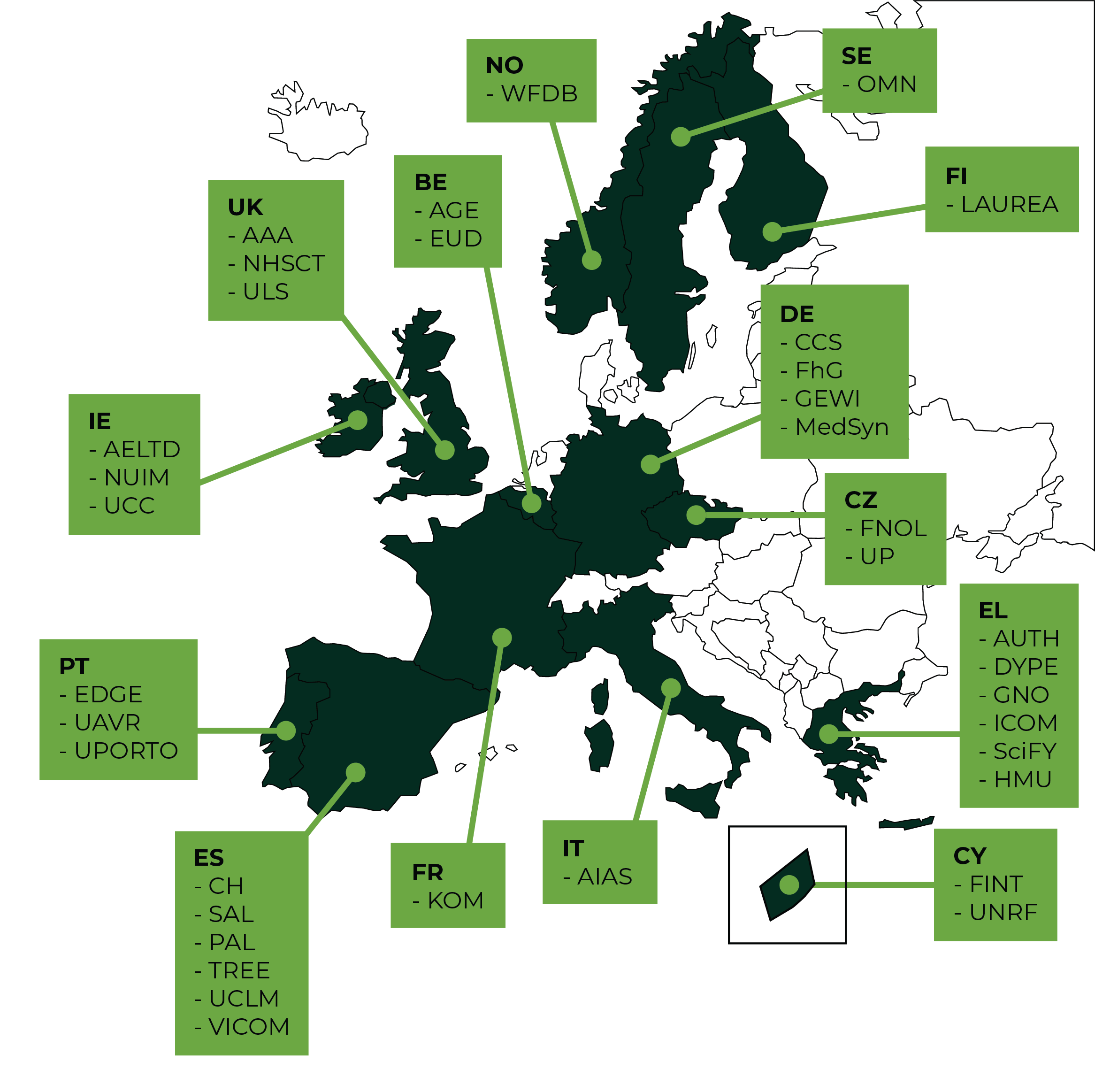
(BE) BELGIUM
AGE PLATFORM EUROPE (AGE)
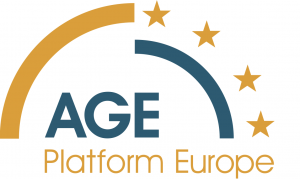
AGE Platform Europe is a European network of +100 organisations of and for people aged 50+. AGE works on a wide range of policy areas and research projects, with the purpose of promoting the interests of older people in Europe. AGE is leading the work package 10 on SHAPES Outreach and Awareness Generation, with the aim to elaborate and implement the SHAPES dissemination and exploitation plan to promote and encourage uptake of the SHAPES results.
EUROPEAN UNION OF THE DEAF AISBL (EUD)
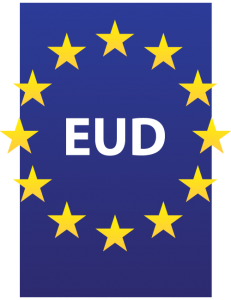
European Union of the Deaf is the organisation at European level representing deaf sign language users in all 28 EU Member States, including Iceland, Norway and Switzerland. EUD has the sole mandate of the National Deaf Associations to work towards a more socially cohesive, sustainable and accessible Europe for deaf citizens realising their inherent human rights. It is EUD’s aim to achieve equality in public and private life for deaf citizens all over Europe to ensure they can become full citizens. Its main objectives are the recognition of the right to use an indigenous sign language, empowerment through communication and information and equality in education and employment. Aiming to establish and maintain EU-level dialogue with the European Union institutions and officials in consultation and co- operation with its member NADs, EUD also has participatory status with the Council of Europe and is a full member of the European Disability Forum, as well as a Regional Co- operating Member of the World Federation of the Deaf to tackle issues of global importance. EUD regularly provides position papers on topics of high importance to the deaf community. EUD is supported by the Equality Unit within the Directorate General Justice at the European Commission.
EUD (https://www.eud.eu/) brings to SHAPES its long-standing competences in accessibility of the deaf community, taking the role of the Accessibility advisor to the SHAPES Action. Further, EUD participates extensively in WP2 and in WP3, collaborating in all comprising tasks, with the exception of the sociotechnical change of organisations embracing the SHAPES ecological approach. Within WP6 on the SHAPES large-scale piloting activities, EUD participates in Task 6.8 focused on the mobility and accessibility of older individuals and in Task 6.10 addressing the inclusion element of the SHAPES solution. In addition to taking part to Task 7.2 on the socio-economic sustainability and funding models of the new health and care delivery in Europe, EUD actively takes part to WP9 – Ecosystem Building and to WP10 – SHAPES Outreach and Awareness Generation activities.
(CZ) CZECH REPUBLIC
FAKULTNI NEMOCNICE OLOMOUC (FNOL)

The University Hospital Olomouc (Fakultní nemocnice Olomouc, FNOL) is the largest health care facility in the Olomouc Region and the sixth largest hospital in the Czech Republic with around 50 000 hospitalized patients per year. In addition to treating the patients, FNOL also focuses on scientific, research, educational and awareness-raising activities. A number of chronic diseases including preventions are treated by the hospital. The hospital also runs Czech National eHealth Center (NTMC), founded originally in collaboration with Palacky University Olomouc in 2012 to provide expertise in telemedicine and cooperation with stakeholders and other entities on digital health development in the Czech Republic and telemonitoring of patients with chronic diseases. FNOL is a Reference Site of the EIP on AHA and has been rewarded by EC for its excellence in innovation. FNOL is also an active member of the B3 Action Group on Integrated care including telemonitoring. FNOL has experience with the participation in a number of international (EU) and national R&D projects focused on digital health, innovation in active and healthy ageing and innovation in treatment of people living with chronic diseases.
FNOL is the Czech Republic’s EIP on AHA Reference Site and an experienced care service provider which expertise reinforces the design, deployment and piloting of the SHAPES solution in the Czech pilot sites. FNOL is responsible for use case focused on advanced telemonitoring of patients with heart failure in home environment. This should bring solutions to address smart living environment for active ageing at home, to improve in-home and community-based care services and medicine control and optimisation. FNOL also collaborates in several activities and tasks, including the delivery of improved integrated care across Europe, the definition of policy-making guidelines to support SHAPES market takeup, the SHAPES user requirements, the sociotechnical change in integrated care service and the SHAPES final recommendations. FNOL also actively takes part in ecosystem building and SHAPES outreach and awareness generation activities.
PALACKY UNIVERSITY (PU) OLOMOUC
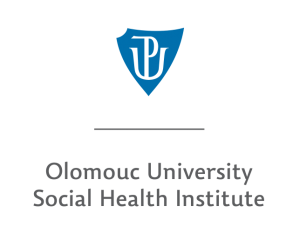
Palacký University Olomouc – Social Health Institute or UP is a scientific and research organisation. Its mission is scientific research and education in health, with emphasis on social and spiritual determinants of health. The aim of the institute is to use and to further develop existing capacities and innovative approaches for addressing major societal challenges in public health and to apply a bio-psycho-socio-spiritual perception of a person. The research team of the Olomouc University Social Health Institute is an experienced research group hosted by the Sts Cyril and Methodius Faculty of Theology. The team members are specialists in different areas (spirituality, psychology, biology, and public health). Their experience covers both quantitative research (e.g. a cooperation with the Health Behaviour in School-Aged Children study), and qualitative research (members of the DIPEx International).
UP is the leader of WP2 dedicated to the lifeworld of older individuals, and of Task 2.5 on the refinement of SHAPES personas and use cases, which form the basis to the pilot activities. bringing forth an extensive experience with the study of health and health related behaviour and their socioeconomic determinants. UP takes part in all WP2 tasks and in most of the WP3 tasks, except for Task 3.6 on the sociotechnical change in integrated care service. Based on the application of the DIPEx methodology, UP also participates in WP6, specifically in tasks dealing with the planning of the large-scale piloting campaign (Task 6.1), with Pilot Themes 2 (Task 6.3) and 4 (Task 6.5) and with the evaluation and assessment of the Pilot Campaign (Task 6.9) and of the SHAPES Platform (Task 6.10). Aside from the collaboration on Task 8.4 relating with the ethical risks for the SHAPES Platform, UP also actively takes part to WP9 – Ecosystem Building and to WP10 – SHAPES Outreach and Awareness Generation activities. UP is hosting the SHAPES Concept Validation Workshop. UP is the contact point for the Czech local user ecosystem.
(EL) GREECE
ARISTOTELIO PANEPISTIMIO THESSALONIKIS (AUTH)

Aristotle University of Thessaloniki (AUTH) serves as the metropolitan University for southern Europe. It is the largest University in Greece covering all disciplines. The Lab of Medical Physics (MEDPHYS – http://medphys.med.auth.gr) is the largest laboratory of the Medical School, which accommodates a dynamic and interactive community of about 14 PhD students, 25 research associates and 3 faculty members, as well as it is the first in terms of funding, academic and research output produced. MEDPHYS, ISO-9001 certified in Software Design, Develop and Production; Design & Implementation of Education/Training programmes, is a major research and development centre comprised of 10 research groups, leaders in their respective specialties, which pursue innovative research projects in assistive technologies, applied neurosciences, medical education, affective computing, semantic web, medical robotics and brain computer interfaces, radio diagnosis and non-ionizing radiation. Having a significant research experience and knowledge in the field of Active and Healthy Aging and Assistive Technologies for other vulnerable target groups, MEDPHYS focuses on exploring shifting paradigms in elderly healthcare as well as care for the developmental disorders and the different innovations and breakthroughs brought about by information communication technologies (ICT), mobile technologies and web technologies in general.
AUTH participates in various tasks referring to the lifeworld of ageing people, the empowerment of older individuals and the refinement of the SHAPES personas and use cases. More specifically, AUTH contributes to the organisational factors of the SHAPES Ecosystem, addressing the organisational models of health and care delivery, the definition of policy- making guidelines for the project scale-up and the SHAPES user requirements. AUTH is liable to lead a Use Case on Pilot Theme 2 “Improving In-Home and Community-based Care” by providing the Integrated Healthcare System Long Lasting Memories Care (LLM Care) (https://www.llmcare.gr/en/home/) and to host three separate pilot themes in its reference site. In particular, it will replicate Pilot Theme 4 “Psycho-social and cognitive Stimulation Promoting Wellbeing”, Pilot Theme 5 “Caring for Older Individuals with Neurodegenerative Diseases” and Pilot Theme 6 “Physical Rehabilitation at Home”. Furthermore, AUTH participates in the overall evaluation and assessment of the Pilot Campaign as well as the SHAPES Platform. It also contributes to the expansion of the SHAPES Ecosystem through networking and the dissemination d of SHAPES Outreach and Awareness Generation activities.
5 YGIONOMIKI PERIFERIA THESSALIAS & STEREAS ELLADAS (DYPE)
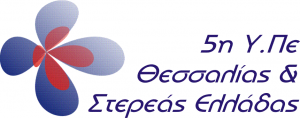
The Regional Health Authority of Central Greece (DYPE) is a National Government Organization responsible for administering all public body health organizations that operate in two large regions of Central Greece, Thessaly and Sterea. These regions include 13 Hospitals (1 of which is a University Hospital) in 10 major cities, 60 Primary Healthcare Centers (urban and rural areas) and 350 Small Primary Healthcare Practices. The Health Authority employs more than 9.000 professionals (2.300 in Primary Care and almost 7.000 in secondary and tertiary), providing health services to a population of approximately 2 million people. The Regional Health Authority of Central Greece is one of seven Health Authorities the country is divided in, under the supervision of the Greek Ministry of Health.
DYPE leads one of seven Pilots Themes in the SHAPES Pan-European Pilot Campaign, assessing and validating the Ecosystem’s cross-border nature. DYPE will address multiple aspects associated with the mobility of older individuals, including those living with permanent or temporary reduced functions or capabilities, with respect to the availability/exchange of health and care data across Europe and the accessibility to healthcare services while traveling. The need for continuous monitoring of older individuals suffering from chronic diseases becomes stronger when travelling to another country, adding up to theirs and their caregivers’ anxiety. SHAPES monitoring and analysing patient’s health and lifestyle data, can empower them to efficiently remote-manage their condition. It can also act as a predictor of critical, life-threatening events, thus triggering specific precaution measures to avoid those events from occuring (or give the patient enough time to reach an emergency room). In case of an emergency situation, it is of critical significance that SHAPES grants access to the patients’ medical history and facilitates communication between the patient, the patient’s physician (back home) and the emergency physician (visiting destination), in order to perform the best informed medical practice.
Additionally, DYPE will pilot-test SHAPES’ capability to assess and identify the safety / accessibility levels of potential tourist destinations for older individual with physical disabilities and enable their navigation when visiting those destinations, thus enhancing their travelling decision-making ability and overall contribute to their active and independent living.
GNOMON Informatics SA (GNO)
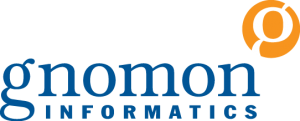
Gnomon Informatics S.A. or Gnomon (https://www.gnomon.com.gr/) founded in 1994 is a Société Anonyme with headquarters in Thessaloniki, Greece and branches in Athens and Cyprus. Gnomon provides services for the design and development of innovative and reliable enterprise grade software systems. Focus areas are: eHealth, eProcurement and bespoke software development of internet enabled applications for both enterprises and the government. Gnomon is affiliated with IHE Europe, HL7 Hellas and Greek IT companies Association. Gnomon’s overall operation is ISO 9001 certified and the company works towards an ISO 27001 operation for organisation’s information security policy. Since its establishment, the company keeps investing in the acquisition and transfer of know-how and has developed strategic alliances with global key players. Since 2009, Gnomon is well known European eHealth interoperability solution provider and participated actively in the epSOS Industry team, being a steering committee member from the beginning. Gnomon also participated in the first reference implementation of the NCP components (NCP in a BOX). Gnomon is an active member of the epsos openNCP Community and development team with participation in many components development (configuration manager, audit manager, cda display tools, NCP B Portal layer).
Gnomon brings its eHealthPass product line that is integrated and improved in SHAPES. Furthermore, Gnomon extensive know-how and expertise in standards is exploited in SHAPES to bring healthcare interoperability, including the cross-border scenarios. In WP2, Gnomon supports the definition of use cases and in WP3, the elaboration of the user requirements. Moreover it supports the design and implementation of the SHAPES architecture, with special emphasis on healthcare interoperability. It also contributes to the implementation of the security components and participates in integration and testing. In WP5, it adapts its eHealthPass product to interoperate in SHAPES and incorporate new features. In addition, it will provide solutions to care providers, bringing the eHealthPass product line. Gnomon also supports the pilots in WP6 (deployment, testing, support) and contributes to WP7 (Market Shaping), including the definition of the market analysis. It additionally contributes to the update of the roadmap and the SHAPES marketplace. In WP9, it supports the co-creation thinktank and leads the work on interoperability. Finally, in WP10, Gnomon contributes to the online presence and dissemination activities.
INTRACOM SA TELECOM SOLUTIONS (ICOM)

Intracom Telecom is a global telecommunication systems and ICT solutions vendor operating for over 40 years in the market. The company develops and provides products, solutions and professional services primarily for fixed and mobile telecom operators, public authorities and large public and private enterprises. The company’s core business offerings include: Wireless Access & Transmission, Telco Software Solutions; ICT Services & Smart City Solutions; Energy Solutions, and; eHealth solutions. ICOM invests annually a significant percentage of its revenue in R&D programs developing cutting-edge products and competitive solutions on an international level. It has a significant involvement in the EU Horizon 2020 research framework.
Intracom Telecom, as a large company with integration know-how, brings the industrial perspective to SHAPES project, specifically contributing the SymbIoTe to act as a generic IoT interoperability middleware among SHAPES components. Contributions of Intracom Telecom to specific activities of the SHAPES project include:
- Technical Management of SHAPES, assisting the coordinator in WP1
- Supporting definition of use cases in WP2
- Supporting elaboration of user requirements in WP3
- Leading WP4 focussed on development, integration and testing of the SHAPES solution
- Supporting SHAPES solution pilot evaluation in WP6
- Contributing to WP7 in the definition of market analysis, roadmap and marketplace
- Supporting innovation watch, interoperability and Open Calls in WP9
Contributing to online presence and dissemination activities in WP10
EPISTIMI GIA SENA ASTIKI MI KERDOSKOPIKI ETAIRIA (SciFY)
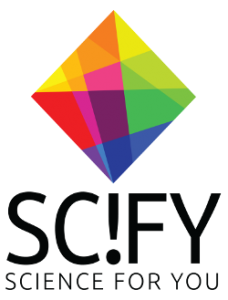
SciFY is an IT SME and a not-for-profit organization that develops cutting-edge information technology systems and freely offers them to all, including the design, the implementation details, and the support needed, in order to solve real-life problems.
SciFY uses expertise in artificial intelligence and other technologies, and a strong network of collaborators (universities, research institutes, NGOs and companies) to bridge scientific innovation with society’s needs and collaboratively produce new solutions. Founded in 2012, in crisis-stricken Greece, SciFY has reached a personnel of 6, an impact of 110,000+ people, and some awards, including one from the President of the Hellenic Republic. SciFY has been evaluated to be in the top 5% of the NGOs in Greece in terms of Transparency, Organization and Effectiveness by independent evaluators.
SciFY has been working with the disability community to develop assistive technologies for people with disabilities and has been awarded at an international level for its work. All of SciFY’s solutions are used every day by thousands of users.
SciFY’s current Areas of Interest and Expertise are Artificial intelligence, Assistive technologies, eDemocracy, Startups and Innovation, Education and skills development and Civil society Support. SciFY bring in SHAPES many of its existing digital tools that are offered freely and under open source licences. SciFY will adapt and incorporate them into SHAPES and will further develop them.
Technologies to be integrated in SHAPES:
- Talk and Play: an application for people with simultaneous speech and motor disabilities
- Memor-i Studio: an online platform allowing users to play and easily create online memory games.
- diAnoia app: a smartphone application for people with mild cognitive impairment and at the early stages of dementia and their carers.
- ICSee: an smartphone application for people with severe visual impairments.
- NewSum: the world’s first application to create automatic news summaries from many sources.
These solutions will be enhanced and localised in order to incorporate new content and features according to the scope of SHAPES.
SciFY always uses a co-creation process; therefore it will also contribute to a) use cases and user requirements definition, b) design of architecture, c) the pilots, d) exploitation and and dissemination activities (market analysis, networking, co-creation think tank, uptake roadmap etc).
SciFY will continue to mature its technologies and integrate SHAPES added functions to the company’s portfolio of solutions and services.
ELLINIKO MESOGEIAKO PANEPISTIMIO (HMU)
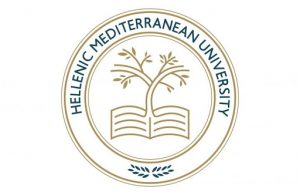
The Hellenic Mediterranean University (HMU), ex Technological Education Institute of Crete, has a history of about 40 years, that of the Technological Educational Institution of Crete, and offers high quality undergraduate and postgraduate studies in Informatics and Engineering Sciences, Health, Agriculture and Food, Economics and Management and Environment . HMU through its heritage is consistently valued as a leading among its peers in research and enjoys recognition for its direct contribution to the development of Crete and Greece.
(FI) FINLAND
LAUREA-AMMATTIKORKEAKOULU OY (LAUREA)
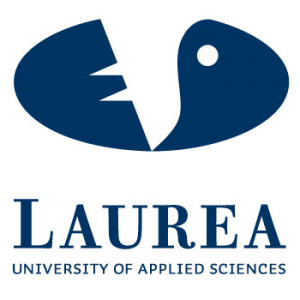
Laurea is a research- and development-oriented, well-awarded, multi-faculty university which operates in the Greater Helsinki Region, Finland, in seven campuses with 8000 students and 550 staff members. Co-creation and Living labs has been selected as a strategic choice to integrate Laurea’s three tasks: education, R&D and regional development. Laurea’s research activities focus on “Service Design and Business Models”, “Health and Social Integrity” and “Coherent Security” which provide a thematic framework for co-creating, testing, assessing, modelling, implementing and distributing various service innovations according to Living Lab principles. In addition, ethical and data security-related themes are strongly represented in the research carried out by Laurea.
The aim of Laurea is to promote the health and wellbeing of individuals, families, groups and communities in different situations in life. Laurea research is carried out in co-production with both the public and private sectors, regionally, nationally and globally. A central phenomenon for Laurea research projects is a user centricity and the research is based on empirical work with authentic user groups. This includes for example new eHealth technologies enabling empowerment of users for their continuous early diagnosis, preventive treatment and independent living.
Laurea is a lead partner in WP8 (Legal, Ethics, Privacy and Fundamental Rights Protection) that provides the ethical framework and requirements for SHAPES and results. Laurea is responsible SHAPES Ethical Management and responsible for coordinating the Ethics Advisory Group. In addition, SHAPES Data Protection Management is Laurea’s responsibility. Laurea has an input also in WP2 (Understanding the Lifeworld of Smart and Healthy Ageing Citizens) and WP3 (Organisational, Structural, and Sociotechnical Factors for the SHAPES Ecosystem) and provides input to WP6 (Pan-European Pilot Campaign, WP7 (Market Shaping, Scale-up Business Models and Socio-Economic Impact), WP9 (Ecosystem Building) and WP10 (Impact creation and dissemination)
Laurea is keen on increasing ethical understanding and competencies in digitally enhanced health care services for future research and education purposes. Laurea is actively disseminating SHAPES through co-creation, user experiences and piloting activities, Scientific Conferences and Publications. SHAPES provides content for Laurea in education and dissemination in regional ecosystem. Laurea is keen on using SHAPES content in future national and European research and innovation initiatives.
(IE) IRELAND
ACCESS EARTH LIMITED (AELTD)
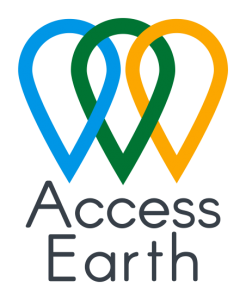
Access Earth is aiming to gather the world’s accessibility information so that it all exists in one place. A lack of accessibility information is cited as one of the largest barriers for people with disabilities when moving through the world. Access Earth break down these barriers through crowd-sourcing and verifying core pieces of accessibility information which is available via the Access Earth mobile and web app at https://access.earth/.
Access Earth brings their knowledge and expertise of accessibility to the SHAPES project with the hopes of improving accessibility for the ageing population.
ASSISTING LIVING & LEARNING INSTITUTE, MAYNOOTH UNIVERSITY
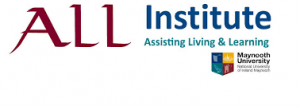
The Assisting Living & Learning (ALL) Institute is a new and internationally unique interdisciplinary collaboration. ALL is involved in some of the largest disability-related projects globally. ALL is supported by funding form leading research bodies, such as the European Commission’s Horizon 2020 programme, Science Foundation Ireland and the Irish Research Council. ALL partners with key civil society organisations as well as private sector innovators. With over 50 members, drawn from across 14 departments, ALL seeks to enable people across their life-course to achieve well-being in their preferred ways; through the development and evaluation of appropriate technologies, person-centred systems and evidence informed policies and laws, that empower users and those supporting them. We focus on developing the interface between the user of services and technologies, and the broader societal infrastructure required to make this use beneficial. This interface is where some of the most exciting and empowering development will occur in the coming decades.
NUIM is the SHAPES IA Coordinator, being responsible for the Project’s technical management and coordination and therefore the leader of WP1 tasks specifically project management and coordination – leveraging on the team’s significant experience in leading and coordinating EU-funded projects. NUIM contributes to SHAPES with significant expertise in assisted living, ageing well and holistic ethnographic aspects, organisational analysis and the development of individual-empowerment concepts of governance considering the roles and relations between actors and resources. NUIM’s role includes ensuring that the project produces solutions that are shaped to meet user needs and informed by an understanding of the problem of smart and healthy ageing and independent living at home. This work will develop use cases and elicit user requirements, and produce a concept of operations, capable of eliciting guidance for organisational change and the adoption of the SHAPES Platform(WP2). NUIM is also responsible for leading WP3 dedicated to the organisational factors of the SHAPES ecosystem. In WP4, NUIM provides its expertise to the definition of the SHAPES Platform’s technical requirements. Further, in WP5, NUIM participates in the design and evaluation of the Platform’s user experience as well as in the integration of robotic platforms and assistive technologies to the SHAPES Platform. NUIM is highly active in SHAPES large-scale piloting activities (WP6), taking part to all tasks.. In addition to a focused participation in WP 7 concerning the shaping of the SHAPES market, NUIM leads the task analysing the regulatory frameworks and how they facilitate the scale-up of SHAPES and collaborates to the different WP8 tasks. Finally, NUIM actively participates in WP9 – SHAPES Ecosystem Building and WP10.
UNIVERSITY COLLEGE CORK - NATIONAL UNIVERSITY OF IRELAND, CORK (UCC)
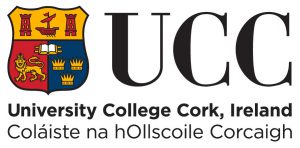
University College Cork is Ireland’s first five star university. UCC researchers collaborate with close to 700 of the world’s top universities across 110 countries and is ranked in the top 2% of universities worldwide based on the quality of its research output and peer esteem. UCC is an internationally competitive, research-led university that plays a key role in the development of Ireland’s knowledge-based economy. UCC is a globally-oriented university that focuses on the challenges and opportunities that are shaping the future of our nation and the wider world. UCC prioritises research in areas that are recognised as significant at the highest international levels, thus creating real impact. Recognising that the foremost global challenges require interdisciplinary solutions, UCC targets areas of major opportunity where UCC has the expertise, the infrastructure and the network to lead internationally. UCC will be represented in SHAPES by the Centre for Gerontology and Rehabilitation, established in 2010, with the specific remit to establish interdisciplinary teaching and learning in Gerontology, Rehabilitation and End of Life Care in UCC. Established in September 2010 and led by Prof William Molloy, the Centre for Gerontology and Rehabilitation is part of the School of Medicine at University College Cork.
The team at UCC brings vast experience in developing, validating and digitizing instruments for measuring cognition in the older adult. They also work with, train and guide allied health practitioners in nursing homes, community hospitals and general practice as well as author and publish books and journal articles for the improved health and wellbeing of the older adult. This experience enables the UCC team to be involved in three work packages; work package 3 (Organisational, Structural and Sociotechnical factors for the SHAPES Ecosystem), work package 6 (Pan European Pilot Campaign) and work package 10 (Outreach and Awareness Generation).
In Work Package 3, UCC is providing expertise in the development of ecological organisational models, the delivery of improved integrated care across Europe, the definition of policy-making guidelines, SHAPES governance model and SHAPES user requirements.
In Work Package 6, UCC is involved in the “Pan European Pilot Campaign Plan, Knowledge Model and Evaluation Methodology” task while also hosting piloting activities for the “Smart Living Environment for Active Ageing at Home” task. UCC is also working on the “Caring for Older Individuals with Neurodegenerative Diseases” task. In Work Package 10, Outreach and Awareness Generation, UCC contributes to the online presence, the delivery of dissemination activities and SHAPES Awareness Campaigns.
(NO) NORWAY
THE WORLD FEDERATION OF THE DEAFBLIND (WFDB)
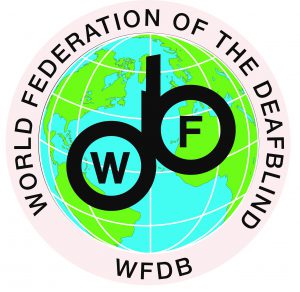
The World Federation of the Deafblind or WFDB (www.wfdb.eu ) has been established in 2001, reaching 75 national and associated member organisations covering 62 countries worldwide. In 2007, the organisation attained consultative status at the UN Economic and Social Council (ECOSOC) and is a member of the International Disability Alliance (IDA) where the WFDB President serves as a member of the board. Through its advocacy, the WFDB has been acknowledged and recognized as the legitimate global voice of persons with deafblindness. WFDB aims to improve the quality of life of people with deafblindness worldwide; With the objective of achieving their equal rights and equal opportunities in all areas of society, and finally to provide a global forum for exchanging knowledge and experiences on deafblindness.
The main role of WFDB is to brings to SHAPES the perspective of the deafblind community. It aims at coordinating and facilitating the participation of persons with deafblindness across Europe into the project, as well as contribute with the unique knowledge and understanding of people with deafblindness and their diverse needs, when it comes to ICT solutions. WFDB will coordinate the tasks and deliverables with its members in Europe, as well as the European Deafblind Union, to have at least 5-10 persons with deafblindness to test the SHAPES platform in each of the specified test countries. In addition, WFDB ensures the overall accessibility of project and deliverables, together with the European Union of the Deaf. The objective is that new innovative technology will prevent isolation of persons with deafblindness, with better participation, integration and visibility in society.
(SE) SWEDEN
OMNITOR AB (OMN)

Omnitor (https://omnitor.com) is a SME with offices in Sweden. It is devoted to the development and deployment of accessible remote communication products, services and platforms. Omnitor is a pioneering company in the TC (Total Conversation) area of remote communication services and products. It provides harmonised communication solutions for real-time communication in video, audio and text, accessible for all citizens including citizens with disabilities and special needs. Omnitor’s product and service portfolio includes call and conference systems supporting Total Conversation, a suite of remote communication apps and state of the art SIP- and WebRTC-infrastructure. Omnitor has also developed and deployed a cloud-based platform with IoT devices that is currently used to make citizens aware of incoming Total Conversation calls in multiple different ways, e.g. flashing lights. Omnitor has contributed to several standards in the area of accessible communication, mainly for people that are excluded from the traditional telecommunications world as they cannot rely on voice telephony alone.
Omnitor is a technical partner and is an expert on IP-based remote communication and accessibility systems, with its own products and solutions. In SHAPES, Omnitor will provide its remote communication solutions and integrate SHAPES added functionality to Omnitor’s portfolio. In collaboration with local municipalities, Omnitor will conduct two small-pilots in Sweden on the two pilot themes “Smart Living Environment for Healthy Ageing at Home” and “Mobility and Accessibility for Older Individuals”. Being an expert on accessibility for disabled citizens, Omnitor will offer advice regarding user requirements, design and implementation for those user groups. During SHAPES, Omnitor’s improved portfolio will be exploited through its customer base and new procurement opportunities.
(CY) CYPRUS
FUTURE INTELLIGENCE LIMITED (FINT)
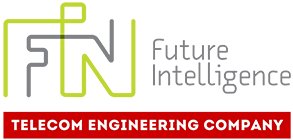
Future Intelligence Ltd is a telecom engineering SME incorporated in 2009. The company focuses on short and long range communications and is committed to integrating their technology into smart cities initiatives. Future Intelligence’s aim is to provide highly demanded solutions and business services.
EREVNITIKO IDRIMA P.L. (UNRF)
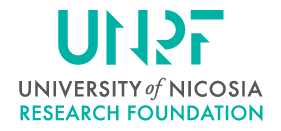
Research at UNRF focuses on global and local issues including health, complex networks, social sciences, education, ICT, engineering, and environmental sustainability. Researchers at UNRF are interested in examining challenges to modern life from a wide range of perspectives, including technological and scientific advances, modern culture and thought, and apply their expertise derived from addressing local, regional and national issues to global challenges and develop teams to bring disciplinary strengths together to approach key issues with global impact. UNRF’s researchers have substantial experience in the management and implementation of research projects, funded by the European Union and the Cyprus Research Promotion Foundation and are currently involved in projects with a multimillion level budget.
UNRF brings its expertise in healthcare innovation and ageing well processes to SHAPES.
In Work packages 2, 3, 5, 6, 7, 9 and 10. supports the creation of mini ethnographic studies (Task 2.1), the building of age friendliness (Task 2.3) the empowerment of older individuals (Task 2.4) and the definition of use cases (Task 2.5).
In WP3, delivers inputs to the identification of ecological organisational models (Task 3.1), the delivery of improved care delivery (Task 3.2), the development of policy-making guidelines (Task 3.3), the elaboration of user requirements (Task 3.5) and the sociotechnical change management of integrated care services (Task 3.6).
In WP5, contributes to the creation of SHAPES user experience (Task 5.1). To the adaptation of their infrastructure to the piloting activities via the Mobile Systems Lab. (MoSys Lab., http://www.mosys.unic.ac.cy/) dealing with the development of an orchestrated modular architecture with an innovative and ready-to-market solution that synergistically combines Networked Media and Telecommunications technologies with Cloud Computing assets into a unified digital ecosystem, enabling users to exploit OTT and Telco services with maximum possible QoE (Tasks 5.2 and 5.3).
In WP6, contributes to the strategy, planning and methodology for the SHAPES action’s pan-European pilot campaign (Task 6.1). It hosts three piloting activities in Cyprus, participating in Task 6.4 dedicated to Pilot Theme 3 – “Medicine Control and Optimisation”, Task 6.6 on Pilot Theme 5 –“Caring for Older Individuals with Neurodegenerative Diseases”) and Task 6.8 (Pilot Theme 7 – “Cross Border Health Data Exchange Supporting Mobility and Accessibility of Older Individuals”), as well as Tasks 6.9 and 6.10 addressing the validation of the SHAPES large-scale piloting campaign and the assessment of the SHAPES Platform.
In WP7, provide input to the definition of socio-economic sustainability and funding models (Task 7.2).
In WP9, supports the open calls (Task 9.3).
In WP10, and contributes to the online presence (Task 10.2) and to the SHAPES Outreach and Dissemination Activities (Task 10.3)
(DE) GERMANY
CARUS CONSILIUM SACHSEN GmbH (CCS)

Carus Consilium Sachsen or CCS (www.carusconsilium.de) initiates, regulates and coordinates sustainable digital health projects that secure and further develop healthcare. Being a non-profit subsidiary of the Dresden University Medical Centre, the mission of CCS is to improve healthcare throughout the state of Saxony. CCS connects more than 600 partners from about 200 institutions in the field of research, healthcare, patient care, economics and politics. A strong interaction with all partners of the network and the federal government of Saxony is the basis for the successful work of CCS. Moreover, CCS is part of the European Innovation Partnership on Active and Healthy Ageing regarding the Falls Prevention and Integrated Care initiatives. To accomplish the promotion and support for innovative products, CCS establishes cooperation between hospitals, ambulant doctors, nursing and home care services, rehabilitation facilities and other relevant institutions and associations. To guarantee efficiency and effectiveness of network management at the highest possible level, CCS provides comprehensive political competences to coordinate and organize goal setting processes. Furthermore, CCS possesses the entrepreneurial abilities to identify chances for setting up cooperation projects and networks. CCS in-house project management and funding experts ensure comprehensive international cooperation.
CCS has substantial experience in coordinating large networks, being responsible for the articulation of an ecosystem of more than 600 partners in Saxony, one of the EIP on AHA Reference Sites.
In SHAPES, CCS leads the work package for SHAPES Ecosystem Building which comprises the SHAPES Co-creation Think-Tank and CCS manages the SHAPES Stakeholders Advisory Board. CCS also participates in the work packages SHAPES Personas and Use Cases and SHAPES’s User Requirements. Thus, CCS is involved in the development of digital solutions for care service providers, which will be applied in two real-life environments (Pilot Theme 1 and the Pilot Theme 2).
CCS further supports the validation of the Pilot Campaign and of the SHAPES Platform. Aside from the collaboration on the Analysis of the Socio-economic Sustainability, Funding Models, Ecosystem Business Models and Scale-up Roadmap, CCS contributes to SHAPES Outreach and Awareness Generation activities. CCS is hosting the SHAPES Integrated Care Models Workshop and is the contact point to the Saxonian healthcare ecosystem.
FRAUNHOFER-GESELLSCHAFT ZUR FOERDERUNG DER ANGEWANDTEN (FhG)
![]()
Fraunhofer Gesellschaft für Angewandte Forschung or FhG is the largest application-oriented research organization in Europe. It undertakes applied research on behalf of industry, service sector, and public administration. The Fraunhofer Gesellschaft currently operates 72 research centres. The staff of around 25,000 people, mainly with scientific or engineering backgrounds, carries out research programs to a value of more than € 2.3 billion per annum. Fraunhofer has been the largest German contributor to FP7.
The Fraunhofer Institute for Technological Trend Analysis (INT) provides scientifically sound assessments and counselling on the entire spectrum of technological developments. On this basis, the Institute conducts Technology Forecasting, making possible a long-term approach to strategic research planning. For more than 40 years, Fraunhofer INT has been a reliable partner for the Federal German Ministry of Defense, which it advises in close cooperation and for which it carries out research in technology analysis and strategic planning as well as radiation effects. Fraunhofer INT also successfully advises and conducts research for domestic and international civilian clients: both public bodies and industry, from SMEs to DAX 30 companies. From Fraunhofer INT the business units “Technology and Innovation Planning (TIP)” and “Corporate Technology Foresight (CTF)” will participate in SHAPES.
FhG provides SHAPES with a whole bandwidth of innovation management tools. The innovation management portfolio, which includes understanding future needs, identifying state-of-the-art and future solutions and facilitating their implementation, ensures that the end-user of the SHAPES solution are able to successfully meet their current and future demands. FhG brings to SHAPES a solid expertise in the development of critical success factors and key performance indicators, in the assessment and evaluation of technologies in pilots, in the technology/solution screening of emerging technologies, in the performance of innovation management activities, in the identification of user needs and the development of user requirements and in the application of cross-cutting methods, such as participatory workshops, questionnaires and interviews.
As a result, FhG is the leader of Task 1.4 dedicated to the innovation and knowledge management in SHAPES, of Task 3.5 on SHAPES user requirements, of Task 6.1 concerning the creation of the piloting campaign methodology and planning of Task 6.9 referring to the evaluation of the SHAPES pan-European pilot campaign activities and of Task 9.2 centred on innovation watch, cross-fertilisation and foresight exercises.
INSTITUT FUR GESUNDHEITSWIRTSCHAFT (GEWI)
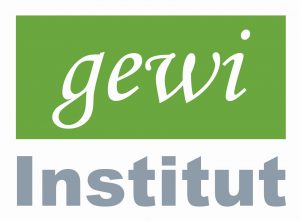
Institut fur Gesundheitswirtschaft (GEW) is a research institute based at Fresenius University of Applied Sciences in Cologne, Germany. It focuses particularly on healthy ageing and integrated care topics. Transdisciplinary research on health care delivery, the role of care-givers, living conditions and the needs of the elderly is being carried out according to a systemic yet patient-centered perspective.
gewi is one of three pillars of the HealthRegion CologneBonn (HRCB), a regional cross-sectoral members’ association serving as a cooperation platform to relevant health sector actors. The HRCB-network consists of more than 130 member organisations, such as territorial entities, public bodies, private companies, professional associations, universities, health insurances, and hospitals. HRCB aims to achieve a closer integration of academia, research, health economy and medical or care services. Among others, HRCB is the ECHAlliance’s Ecosystem Rhineland coordinator, an active partner of the CORAL network (Community of Regions for AAL), as well as engaged in the European Innovation Partnership on Active and Healthy Ageing (EIP on AHA).
gewi’s coordination function in the publicly funded “regional innovation network (RIN) for Healthy Ageing” (2015-2019) anchored the research institute as a legitimate contact for local government when coordinating research and representing the region’s interests in active and healthy ageing.
The basis of gewi’s activities within SHAPES is its leadership in the activities of the EIP on AHA reference site “Oberbergischer Kreis”, a designated pilot site of the project focusing on healthy ageing in rural areas afflicted by waning numbers of health professionals and other challenges. SHAPES will allow the gewi-institute to gain in-depth understanding of success factors for patient empowerment through accessible and tailored health information, aiming at improving the sense of well-being of older individuals living in rural areas.
Within SHAPES, gewi is looking at older individuals living at home and in need of continuous care provided by a mobile nursing service as well as, in one use-case, individuals living in care homes. By stimulating their cognitive and physical activity with tech-based offers and technical devices, gewi strives to enable older individuals to stay in their own home-environment fitter and for longer. Besides its active role in the pilot campaign, gewi will steer the socio-economic sustainability analysis and the SHAPES collaborative governance model. As the contact point for the “Oberbergischer Kreis” Reference Site, gewi reaches out to a great number of stakeholders in the regional health care system to promote sharing of knowledge and best practices.
MEDICALSYN GMBH (MedSyn)

Core business of MedicalSyn (MedSyn) is the development and operation of medical EDC-systems and medical database solutions (MDBS). The medical databases and registry systems developed and operated by MedSyn currently document more than 7.000 patients in national and international projects.
In addition, MedSyn has many years of expertise in the development and operation of tablet-based survey systems for medical-clinical care solutions and in clinical trials. Furthermore, MedSyn provides services in data management and pharmacovigilance. MedSyn cooperates with national and international project partners.
MedSyn brings healthcare systems and medical databases to demonstrate interoperability with SHAPES components, including incorporation of healthcare data from IoT devices.
(ES) SPAIN
CLINIKA DE KAY SL (CH)
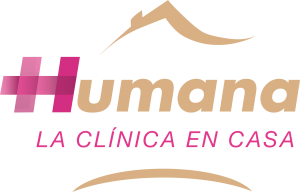
Clínica Humana (CH) (www.clinicahumana.es) is specialised in management of chronically ill patients. Founded eight years ago and directed by its medical director, Dr. Karina Ojanguren, CH has a strong and recognized expertise in out of hospital care of chronically ill patients, backed by more than eight years of experience. We have treated more than 1000 patients in their homes covering all types of pathologies with a proven satisfactory result which guarantees the quality of life of our patients from their homes. We are pioneers in health care to house call patients in the Balearics. We focus our activity in comprehensive and proactive patient care, enhancing continuity of care through structured coordination and promoting health education of the patient and/ or caregiver. We also design the most appropriate service programme depending on the patient’s pathology to be treated. We have a multidisciplinary team of qualified doctors, nurses and physiotherapists and the support of modern computer technologies that allow us to offer the best service. We are committed to quality of life and comfort of our patients through continuous and effective home health care. Through our innovate care we manage to minimise the patient’s symptoms with strategies for prevention and health promotion.
CH is an experienced care service provider in Spain and its expertise reinforces the design, deployment and piloting of the SHAPES solution in one of the Spanish pilot sites. CH collaborates in the definition of policies to empower and engage older individuals as the basis to the SHAPES piloting activities. Also, CH presents a solid intervention in several tasks of WP3, namely the improved care service delivery the policy-making guidelines, the user requirements, the socio-technical change of organisations to meet the new challenges of integrated care and the SHAPES Recommendations. Based on the adaptations required for the deployment of its digital solution ROSA, CH takes part on the solutions to address healthy ageing and independent living and on the robotics and assistive technologies, respectively. Within WP6, CH hosts three separate pilot activities on pilot themes (Task 6.2, 6.3, 6.7) and participates in the evaluation and assessment of the Pilot Campaign (Task 6.9) and of the SHAPES Platform (Task 6.10). Aside from the collaboration relating with the socio-economic sustainability analysis and funding models, CH actively takes part to WP9 – Ecosystem Building and to WP10 – SHAPES Outreach and Awareness Generation activities. CH is the contact point for the Spanish local user ecosystem.
ASOCIACION BENEFICO-SOCIAL EL SALVADOR (SAL)
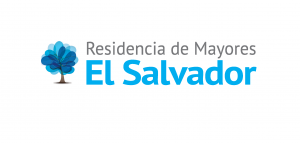
Residencia de Mayores El Salvador – Asociación Benéfico-Social or SAL is a non-profit organisation founded in 1982 devoted to assist older adults in the area of Valle de los Pedroches, which includes 17 towns, in the region of Andalucía (Spain). It currently holds the international certification for Quality management systems – Requirements (ISO 9001:2008). SAL has been, since its foundation, willing to embrace innovative ICT technologies to improve the services they provide but also, as tool for active aging. They were pioneers in introducing IoT technology in the daily processes (RFID tags in the laundering, remote monitoring of residents suffering specific dementia) leveraging improved support to residents, detailed information reported to the family, advanced support for avoiding error-prone tasks.
SAL develops its activity in a Nursing Home Facility (8500m2) with currently 147 residents (111 of which are dependent people and 36 still autonomous) and 82 employees, including doctors, psychologists, physiotherapist, occupational therapist, nurses, nurse assistants, cook, cook assistant). SAL does also provide personalised nutritional and catering service with home delivery. Apart from food delivery, they also provide home help services for around 600 associated in the area.
The aim of SAL, under the SHAPES project is to improve the quality of life and well-being of older adults by improving the quality of care they provide through the use of innovative ICT solutions. To this end, SAL will not only provide its extensive experience and knowledge in the field of elderly care but will also bring to the project a multidisciplinary group of experts in elderly care. SAL will host different pilots, not only in their facilities but also across the community to whom they provide home care.
SAL presents a peculiar environment that reflects the depopulation effect suffered by the rural environment. With an ageing population that demands care services, there is a shortage of people to provide them. Technology stands out to ensure optimum use of available resources and improve the quality of care delivered. SAL will evaluate and assess the impact of technology for the following purposes: physical activity and rehabilitation, remote in-home wellbeing monitoring and assessment, for independent living and social connection, remote monitoring of key health parameters, and digital assistance on people with mild cognition impairment.
PAL ROBOTICS SL (PAL)
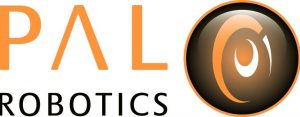
PAL Robotics’ mission is to create disruptive service robots that enhance society’s quality of life and solve daily problems. Robotics can make a difference by collaborating with humans, providing support for domestic tasks and increasing efficiency in industrial workflows. PAL Robotics are a part of SHAPES to bring high-end robotics solutions to the ageing population.
TREE TECHNOLOGY SA (TREE)
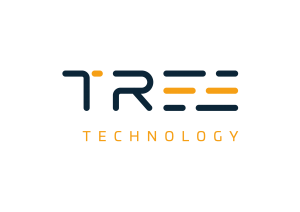
Tree Technology (TREE) is a Spanish Research and Development SME that provides ICT-based solutions for different sectors and markets (especially healthcare). TREE works within an open innovation model to provide their customers with advanced ICT solutions, helping them to optimise their processes and improve their business. R&D activities, in particular cooperative initiatives are key to the company business model in assessing the maturity of emerging technologies, gathering new and differential knowledge, and identifying strategic partners to create new business opportunities.
The R&D unit (http://www.treetk.com/en/R&D.html ) focuses on Artificial Intelligence and Big Data, integrating emerging technologies as part of the Smart Data ecosystem. In this context, Machine Learning and Analytics, Computer Vision, Cognitive Systems, or Visual Analytics occupy a relevant position among the company’s research lines.
TREE is the WP5 leader: SHAPES Digital Solutions. Besides, TREE is the partner in charge of providing a Big Data Infrastructure for the data processing and supporting the development of intelligent digital solutions, applying Artificial Intelligence techniques for the development of predictive models.
UNIVERSIDAD DE CASTILLA - LA MANCHA (UCLM)
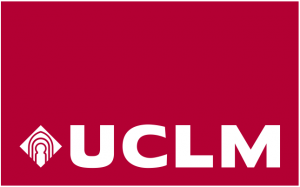
The University of Castilla-La Mancha or UCLM is a regional public university with campuses in the main cities of the region of Castilla-La Mancha. UCLM has around 28,000 students, 2,200 professors and 1,100 people dedicated to administration and services. It offers 47 bachelor’s degree programs and 34 official master’s degree programs, with more than 200 research groups. Among these groups, it is the Computer Architecture and Networks (ARCO) group the one participating in SHAPES representing UCLM. The ARCO group and the members that are part of it, are affiliated to the School of Computer Engineering, located in Ciudad Real. They have participated in different research funded by the Spanish Ministry of Science and Technology, the European Commission and the NATO, as well as funded by different companies. The main research areas include Complex heterogeneous (Hardware-Software) system design, Networks and Advanced Communication Services, Intelligent Systems and Innovation Management. Among these skills, ARCO will be contributing to the SHAPES project with is knowledge and expertise about distributed and intelligent systems, although innovation management will be also relevant given the scope of the project.
UCLM aims the improve of physical health and wellbeing of older adults through physical activity and rehabilitation. UCLM leads Pilot Theme 6 for “Physical Rehabilitation at Home”, in close collaboration with SAL. Despite SAL being the main emplacement for this Pilot Theme, this will also be replicated in two more sites: CH and AUTH.
A digital solution will be developed that will not only provide support for the real-time supervision of the exercise routine performance, based on dept-camera video analysis. This digital solution will also provide support for other’s partners (VICOM and OMNITOR) technology for orofacial exercise supervision and video call support. Furthermore, wearable technologies will be considered to track the rehabilitation process (patients recovering from a stroke) as well as the evolution of different conditions with impacts on physical state (such as the stiffness suffered by Parkinson’s disease patients). These digital solutions will not only contribute to improve individuals’ health and wellbeing but it will also support information gathering which will contribute to achieve a better understanding of diseases’ evolution as well as the impact that the aging process has on physical conditions. This knowledge will eventually lead to evidence-based person-centred care.
FUNDACION CENTRO DE TECNOLOGIAS DE INTERACCION VISUAL Y COMUNICACIONES VICOMTECH (VICOM)
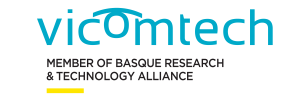
VICOMTECH (www.vicomtech.org/en) is an applied research centre for Artificial Intelligence, Big Data and Visual Computing Technologies located in San Sebastian (Spain). VICOMTECH is a non-profit foundation established in 2001. Vicomtech has a strong record in ICT technology transfer and applied research with companies (more than 90% of them are SMEs) in different sectors. VICOMTECH is part of the GraphicsMedia.net international alliance, specialised in applied research with several partners in Germany, Portugal, Italy, Spain and Panama. VICOMTECH’s main research lines lay in the fields of data analytics, computer vision, computer graphics and interaction. Among its 120 employees, more than 80 are researchers (40 PhD) dedicated to the field of applied research. The role of VICOM in the market is to supply society with technology by transfer of primary research to industry through collaborative R&D&I projects.
VICOMTECH brings its expertise in the use of Artificial Intelligence, Speech Recognition, Computer Vision and Big Data, integrating these emerging technologies as part of the SHAPES ecosystem. In WP2, VICOMTECH supports in the elaboration of the use cases. In WP3, it contributes to the elaboration of the user requirements and in WP4 to the design and implementation of the SHAPES architecture. VICOMTECH collaborates in the implementation of the big data infrastructure, providing advanced computer vision technology, leading and providing voice recognition and Natural Language Processing technologies. VICOMTECH contributes on multi-modal authentication of the SHAPES end users. Besides, it participates in the integration and testing of the technology provided. In WP5 SHAPES Digital Solutions, VICOMTECH contributes with decision support, risk assessment and prediction algorithms and leads Lifestyle Management and Wellbeing Assessment Solution task. VICOMTECH also supports all pilots in WP6 (deployment, testing, support) and it contributes to WP7 (Market Shaping), including the uptake roadmap and the marketplace. Finally, in WP9, supports the think-tank, innovation watch and networks and in WP10, contributes to the online presence and dissemination activities.
(FR) FRANCE
KOMPAI ROBOTICS (KOMPAI ROBOTICS)
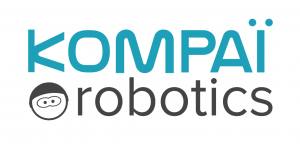
KOMPAÏ robotics is a startup founded in 2016, which bought healthcare assets of ROBOSOFT, a supplier of advanced robotics solutions for transport (goods and people), cleaning, research, and health since 1985 and which stopped business early 2017. KOMPAÏ robotics’s main objective is to develop robotics solutions to help frail people and their caregivers, wherever they live. In addition to these healthcare products, we develop customized robotic solutions based on our state-of-the-art “technological bricks”.
Our main role is to offer Robotics and Assistive Technologies for elderly persons. 3 KOMPAÏ robots for assisted living will be adapted to work with SHAPES and incorporate new features for Pilot Theme 1: Smart Living Environment for Active Ageing at Home, Pilot Theme 2: Improving In-Home and Community-based Care and Pilot Theme 6: Physical Rehabilitation at Home. Beside this we are contributing to the following activities:
- definition of use cases,
- the elaboration of the user requirements,
- the design and implementation of the SHAPES architecture and participated in integration and testing,
- pilots execution,
- market Shaping including the definition of the market analysis and the update roadmap,
- the innovation watch and interoperability,
- the online presence and dissemination activities
(IT) ITALY
ASSOCIAZIONE ITALIANA PER L ASSISTENZA AGLI SPASTICI PROVINCIA DI BOLOGNA (AIAS)
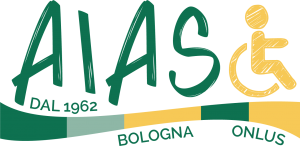
AIAS Bologna is an independent end-user driven Association (NGO). Since 1962, the Association has been advocating for the rights of persons with disabilities and their families and it is fully committed to the implementation of the UN Convention on the Rights of Persons with Disabilities. AIAS Bologna has developed a wide range of services that support people with disabilities and older citizens in living as much as possible independently and as anyone else, e.g. housing solutions, daily activities, education, employment, leisure.
The operational unit of AIAS that will take part in SHAPES is The Centre for Innovation and Research WeCareMore, composed of a multidisciplinary team of experts from AIAS Bologna. The Centre offers to public and private bodies consultancy services and partnerships regarding the use of digital technologies in the health and social care sector. The goal is to support the transformation of the care sector in the era of the digital revolution, developing economically sustainable solutions, based on the principles of co-design, that enhance the quality of life and autonomy of the elderly and persons with disabilities.
English Website: http://www.at4inclusion.org/
AIAS Bologna is the unique Italian partner of the project and the contact point for the Italian local user ecosystem. It exhibits a solid participation in all tasks of both packages 2 and 3. AIAS leads on Task 3.2, centred on improved integrated care delivery in Europe. Within WP6, AIAS hosts three separate pilot activities on pilot themes 1 (Task 6.2), 2 (Task 6.3) and 4 (Task 6.5) and participates in definition of the pilot campaign plan (Task 6.1), the evaluation and assessment of the Pilot Campaign (Task 6.9) and of the SHAPES Platform (Task 6.10).
Aside from the collaboration on Task 7.2 relating with the socio-economic sustainability analysis and funding models and on Task 8.4 referring to the ethical risk assessment in SHAPES, AIAS actively takes part to WP9 – Ecosystem Building and to WP10 – SHAPES Outreach and Awareness Generation activities. AIAS will give its further contribution on the dissemination and the exploitation of the results, hosting the “SHAPES Scaling-up Integrated Care in Europe Workshop”.
(PT) PORTUGAL
EDGENEERING LDA (EDGE)
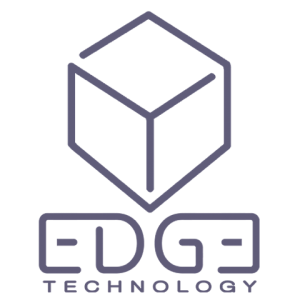
EDGENEERING or EDGE (https://edgeneering.eu) is a Portuguese start-up SME with a technology drive, dedicated to the design and development of high-performing real-time cyber-physical systems for the smart healthcare business market. EDGE‘s solutions uniquely combine automation, data analytics and engineering to design and develop differentiating, reliable and high-performing smart solutions for specific societal challenges: to create safer societies, to contribute to healthier societies and to promote sustainable societies. Leveraging the Internet of Things (IoT) paradigm, EDGE‘s ambitious vision has led the company to build a highly innovative and competitive smart technology portfolio for hospitals, private clinics, medicalised nursing and homecare environments, and to establish early-on a business model based upon strong partnerships with national and international partners, selected for their market value and capability to support EDGE making its vision a reality.
EDGE brings to SHAPES the eCare Platform, an innovative big data platform integrating wellbeing and ambient living data that will enable older individuals to autonomously monitor their wellbeing and lifestyle data, as well as care plan adherence, to take proactive behaviours that improve their quality of life. Health and care professionals and informal caregivers use eCare to remotely monitor the wellbeing and lifestyle of older individuals and accompany their condition’s evolution, while also considering real world data, providing relevant support to maintain and extend their independence at home for the longest time possible.
In addition, in an effort to combat COVID-19, EDGE also brings to SHAPES the ONE System, an observation platform for epidemics that allows the gathering of symptom data from the community and provides this data to the national health service in charge of accompanying the older individuals that are in quarantine or social isolation at home since they represent the higher risk population. With ONE, the medical professionals can remotely monitor the change in the status of each patient, based on the progression of the symptoms’ severity. Then they are able to call those patients requiring immediate assistance or urgent attention and, if needed, action their hospitalisation.
UNIVERSIDADE DE AVEIRO (UAVR)

UAVR is a Portuguese public foundation, that provides higher education since 1973, generating research and promoting cooperation with society. UAVR is one of the most innovative universities in Portugal and is a privileged partner for companies and (inter)national organisations, cooperating in several projects and providing important services.
UNIVERSIDADE DO PORTO (UPORTO)
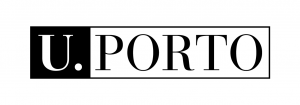
University of Porto is Portugal’s second largest university in the country. It has around 1600 non-teaching staff, over 31.000 students and 2300 full-time academic staff, two thirds of which are post-graduates. This high qualification level of the teaching staff, combined with advanced lab technology and equipment, as well as the close connections with the business world ensure first-class training, which is fully recognized by the labour market. As the biggest producer of science in Portugal, with 14 faculties and one business school along with 16 libraries and 14 museums distributed over 3 campuses, UPORTO provides an exceptional variety of courses (over 600 training programmes per year) covering the whole range of study areas and all levels of higher education, from degrees to lifelong education courses. Currently, UPORTO hosts over 50 research centres (9 of them are state associated labs) covering a wide range of areas, from the humanities to sciences and technologies, and 6 competence centres in the fields of cybersecurity, ageing, biomechanics, media, ocean and materials research. UPORTO is responsible for over 20% of the Portuguese scientific papers indexed each year in the ISI – Web of Science (ISI-WoS).
UPORTO is involved in SHAPES Project through ICBAS, CINTESIS and Porto4Ageing. UPORTO is involved in WP2 tasks, namely Task 2.1 on the mini-ethnographic studies and Task 2.5 on the refinement of SHAPES personas and use cases for the piloting activities. A broaden participation is envisioned in WP3, with UPORTO providing expertise to Task 3.1 concerning the ecological organisational models, Task 3.2 on the delivery of improved integrated care across Europe, Task 3.3 on the definition of policy-making guidelines, on Task 3.4 concerning SHAPES governance model, on Task 3.5 on SHAPES user requirements and on Task 3.7 on SHAPES Recommendations. In WP6, UPORTO is hosting a pilot activity, taking part to Task 6.6 dedicated to the Pilot Theme 5: Caring for Older Individuals with Neurodegenerative Diseases. Aside from taking their part in the evaluation and assessment of the Pilot Campaign (Task 6.9) and of the SHAPES Platform (Task 6.10), UPORTO participates in Task 7.2 relating with the socio-economic sustainability analysis and funding models for SHAPES and in Task 9.3 on networking and liaising to expand the SHAPES Ecosystem. On WP10 – SHAPES Outreach and Awareness Generation, UPORTO contributes to the online presence (Task 10.2) and the delivery of dissemination activities (Task 10.3).
(UK) UNITED KINGDOM
AGILE AGEING ALLIANCE (AAA)
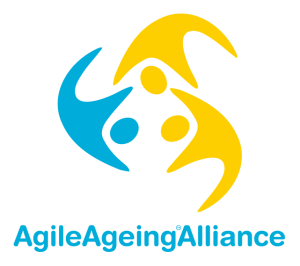
AAA is focused on cultivating the development of smart age-friendly housing in multigenerational neighbourhoods. Age-friendliness necessitates cultivating attitudes and behaviours that promote the dignity and worth of older people, their sense of security and belonging and of being valued members of society. AAA aims to help identify older individuals’ and key opinion formers perspectives on how to foster age-friendly attitudes and environments to inform development of the SHAPES Platform.
Through the integration of a broad range of technological, organisational, clinical, educational and societal solutions, AAA will help promote the SHAPES consortium’s efforts in addressing how current and future digital solutions and innovation can be applied to support planning for extended lifespans, while maintaining an independent, healthy and active lifestyle.
AAA will also promote the adoption of global standards in the field of integrated care of older people in the EU, and the identification of standardisation priorities to facilitate the deployment of open and interoperable technical systems, promoting SHAPES human centred co-design process which builds on personas and use cases.
AAA aims to help SHAPES highlight the benefits of international collaboration for the swift attainment of positive outcomes and results from innovation and associated broader impact in science, economy and society.
AAA works with SHAPES partners to further the consortiums’ aims and aspirations
AAA will also use focus group consultations in SHAPES pilot sites to identify older individuals’ perspective on how to foster age-friendly attitudes, how this can be facilitated by the SHAPES Platform; and how people can be encouraged to use the SHAPES Platform as a tool for promoting recommendations for the creation of age-friendliness.
NORTHERN HEALTH AND SOCIAL CARE TRUST (NHSCT)

The Northern Health and Social Care Trust (NHSCT) is one of five health and social care trusts in Northern Ireland. The Trust is responsible for the delivery of safe and effective health and social care services to a population of approximately 470,000 people, the largest resident population in Northern Ireland.
The Trust’s vision is to deliver excellent, integrated services in partnership with our community. In the delivery, planning and reforming of its services, all staff are guided by the core values of compassion, openness, respect and excellence. The Northern Health and Social Care Trust (NHSCT) is a Pilot Leader in SHAPES Pan-European Pilot Campaign. The key role of the NHSCT is to co-ordinate and deliver an international pilot study to validate the use of the SHAPES Platform in optimising medication control and improving adherence to medicines and treatments across a number of different European countries.
The aim is to deliver safer, more effective use of medicines at home for older individuals living with permanent or temporary reduced functions or capabilities due to chronic, age-related illnesses. Digital Solutions will be deployed to monitor the individual’s health condition(s), physiological parameters and medicine adherence. A personalised approach will be undertaken to enable early identification of side effects and the opportunity to adjust medicines and treatments so as to deliver safer and more effective use of medicines in-home, thus improving quality of life of the care recipients and reducing health care resource use.
In addition to the delivery of a European pilot study the NHSCT is actively engaged in a number of the other SHAPES work packages and are keen to promote Northern Ireland as a leading area for medicines optimisation R&D and to increase collaborative working with research networks across Europe.
UNIVERSITY OF ULSTER (ULS)
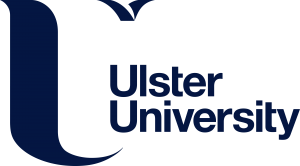
Ulster University is a multicampus University located in Northern Ireland, UK. With over 25,000 it is the largest University in Northern Ireland and the second largest University on the island of Ireland. The university has a broad course provision covering arts, business, engineering, information technology, life and health sciences, management, and social sciences. Courses have a strong vocational element and the majority include a period of industrial or professional placement.
Ulster University’s international reputation for research excellence has received worldwide recognition. International experts have judged Ulster University as being in the top 25% of UK universities for world-leading research based on research power, and 72% of research activity is judged to be world-leading and internationally excellent. Excellence in research at Ulster envisions an internationally-engaged, research-led university, where both disciplinary excellence and impactful interdisciplinary research are undertaken across our strategic themes of social renewal, sustainability, healthy communities and creativity and culture.
The Ulster team is comprised of individuals from the Faculty of Computing, Engineering and the Build Environment, and, the Ulster Business School. The team has a long track record in both teaching and research activities relating to healthcare technology. This has ranged from the delivery of health informatics and biomedical engineering programs through to advanced medical device research. The team will utilise the resources available at the Nanotechnology and Integrated BioEngineering Centre. NIBEC is a purpose built multi-disciplinary research centre that combines skills in engineering, science, informatics and medicine in order to enhance the development of devices and systems which have applications in health care. Ulster’s SHAPES activity will involve providing expertise in the following key areas:
- Health data analytics.
- UX design, implementation and evaluation
- Health technology assessment and impact assessment.
- Health technology standards and interoperability.
This activity will be spread across a number of project work packages with the Ulster team playing a particular role in taking the lead on User Acceptance, Inclusion and Societal Impact Assessment (Task 6.1).
